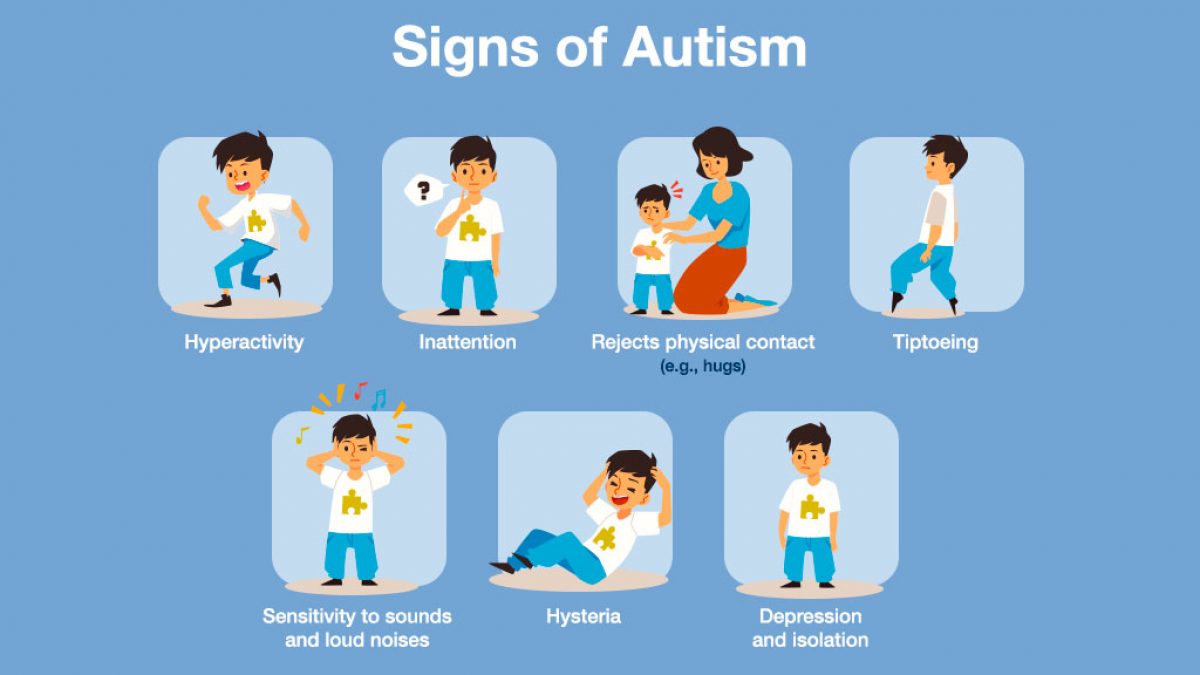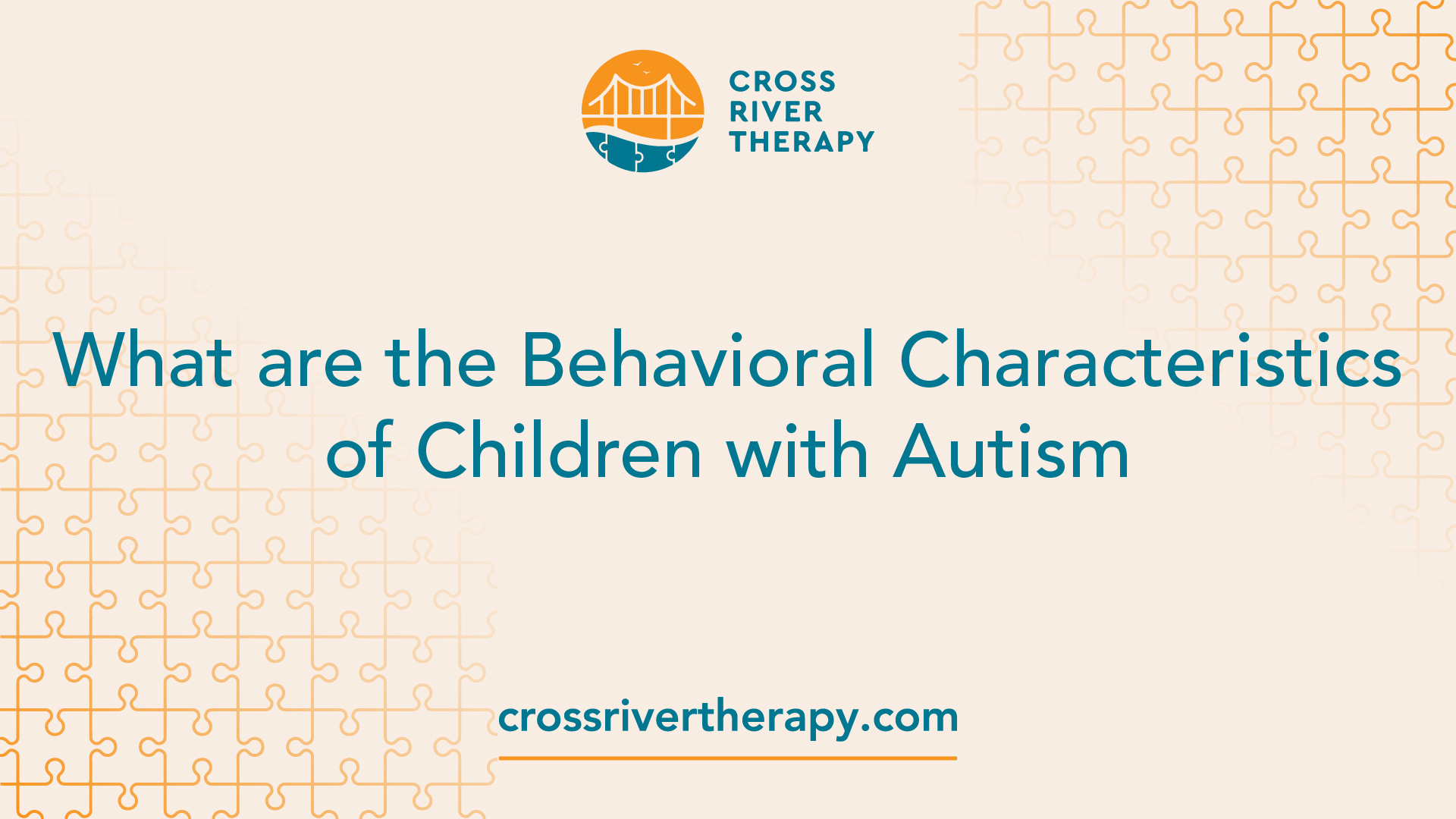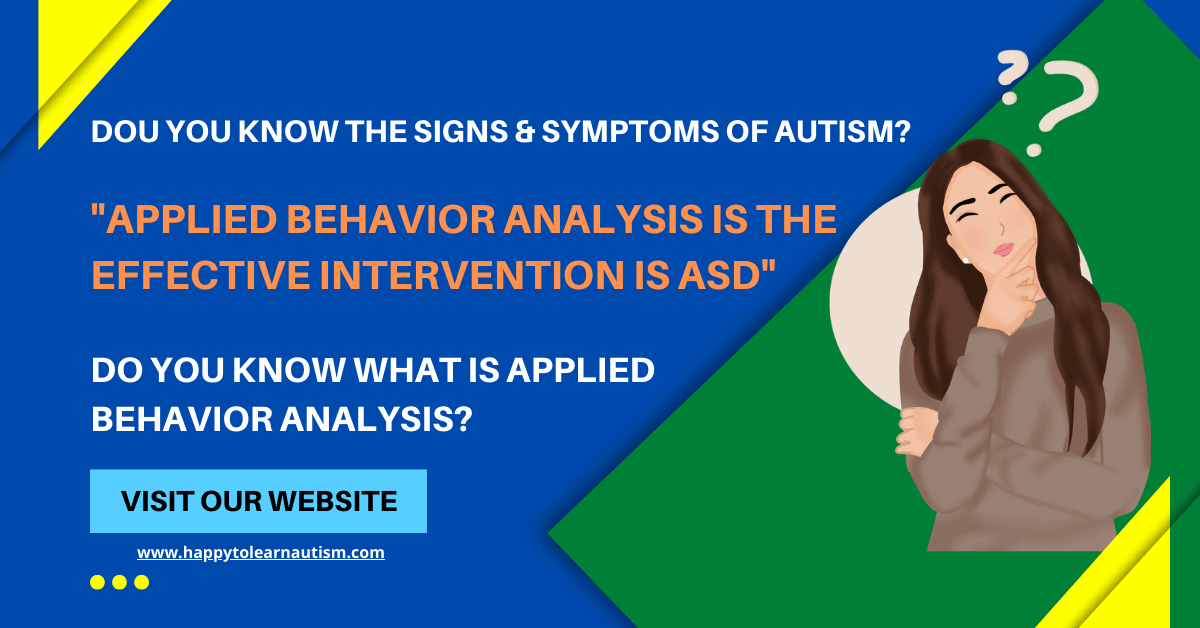The role of structured routines help children with autism—according to an Autism Therapist
The role of structured routines help children with autism—according to an Autism Therapist
Blog Article
Trick Symptoms And Signs to Recognize in People With Behavior Autism
When you run into a person with behavior autism, identifying crucial symptoms and signs is essential. You might notice challenges in social communications and interaction, along with a solid requirement for routines. Additionally, sensory sensitivities can lead to overwhelming experiences. Understanding these characteristics can improve your support and interventions, yet there's more to uncover about how these behaviors show up in day-to-day circumstances. Let's discover what these signs really look like.
Challenges in Social Interactions
When you communicate with a person on the autism spectrum, you might see they have a hard time with social signs and communication. These difficulties can make social interactions really feel overwhelming for them.
When they do engage, they might talk regarding their rate of interests in great detail without discovering if you're interested. Comprehending these challenges can assist you approach interactions with empathy and perseverance, fostering a more comfortable environment for both of you.
Difficulty With Verbal and Non-Verbal Communication

Recognizing these indicators is important, as it assists you far better support and involve with individuals on the autism spectrum. By comprehending their interaction difficulties, you can promote much more meaningful connections and supply an extra helpful environment.
Recurring Behaviors and Routines
Interaction difficulties usually come with various other indicators of autism, such as recurring habits and a strong preference for routines. You may see that people with autism typically take part in details, repetitive activities, like hand-flapping, rocking, or duplicating phrases. These actions can give convenience and a feeling of control in a commonly frustrating world.
Routines are just as vital; lots of individuals grow when they adhere to a structured routine. You may find that changes to these routines can cause significant distress. If they have an everyday routine of consuming breakfast at a specific time or following a specific path to school, any type of disruption can create stress and anxiety.
Acknowledging these patterns assists you comprehend their habits and give assistance. By suiting their requirement for regular and allowing repeated activities, you can produce a more comfy atmosphere that alleviates their difficulties.
Sensory Level Of Sensitivities

Common Sensory Triggers
Sensory level of sensitivities can considerably impact life for people with autism, as particular stimuli commonly cause overwhelming responses. Usual sensory triggers consist of loud noises, brilliant lights, and strong scents. You may see that abrupt audios, like alarm systems or alarms, cause anxiety or distress. Similarly, fluorescent illumination in shops can feel unpleasant and extreme. Structures can likewise play a substantial role; rough fabrics or certain food structures might be intolerable for you. Furthermore, crowded locations can bewilder your senses, making it difficult to kick back or focus. Comprehending these triggers can help you manage your setting better. By recognizing what influences you, you can take steps to reduce discomfort and enhance your everyday experiences.
Behavior Feedbacks Clarified
Comprehending your behavioral actions to sensory level of sensitivities is essential, as they commonly reveal exactly how you communicate with the globe. You might observe that particular noises, lights, or textures overwhelm you, causing anxiety or discomfort. When faced with these stimuli, you may take out, cover your ears, or even respond aggressively. These feedbacks aren't just quirks; they're your method of coping with overstimulation. You may likewise locate on your own looking for specific sensory experiences, like deep stress or peaceful environments, to help ground on your own. Acknowledging these patterns aids you recognize your needs far better and can direct how Your Domain Name you connect them to others. By recognizing your sensory level of sensitivities, you can function towards developing a setting that really feels extra comfy and manageable for you.
Coping Methods Overview
Recognizing your sensory sensitivities is just the primary step; now it's time to discover coping approaches that can help you take care of those experiences properly. Begin by developing a sensory toolkit tailored to your demands. This could include noise-canceling earphones, fidget toys, or calming fragrances. Developing an organized routine can likewise offer predictability, reducing anxiety around sensory overload. When you feel overloaded, take breaks in a quiet room to regroup. Practicing mindfulness strategies such as deep breathing can help ground you in the minute. Additionally, connect your demands with those around you; having helpful family and friends can make a significant difference. Remember, discovering what works best for you may take time, so be open and patient to trying brand-new methods.
Restricted Passions and Emphasis
While lots of individuals develop a large range of rate of interests, those with autism usually show restricted interests and an extreme emphasis on particular topics. You could observe that someone with autism can invest hours diving into their preferred topic, whether it's a particular sort of train, a particular motion picture, or a scientific concept. This extreme focus isn't simply a pastime; it can become a main part of their identification and social interactions.
You may locate that conversations focus on these rate of interests, and they might have a hard time to engage in more comprehensive topics. For them, these concentrated rate of interests provide comfort and a feeling of mastery. While it's important to motivate exploration of new topics, appreciating their interests is similarly vital. By comprehending and acknowledging these click here to read limited passions, you can promote an encouraging environment where they really feel valued and understood, permitting even more meaningful links and interactions.
Emotional Policy Troubles
Individuals with autism frequently encounter obstacles in psychological law, which can be affected by their extreme emphasis on details rate of interests. You might notice that when a person is deeply taken part in a favored task, they can experience solid emotions, whether enjoyment or disappointment. This strength in some cases makes it hard for them to shift equipments or handle their feelings when points do not go as prepared.

Variability in Developing Turning Points
When it involves developmental landmarks, you'll see that individuals with autism often show a wide variety of irregularity. Some may hit turning points promptly, while others might hang back or development at a various rate. You could see a child stand out in language skills however battle with social communications. This variance can be complex, as traditional benchmarks don't constantly apply.
It's important to identify that each person's trip is one-of-a-kind. Some might create complex skills early, only to face difficulties in the future. Others might take longer to achieve basic milestones yet after that prosper in details areas. Observing these patterns can help you understand their strengths and needs much better.
Regularly Asked Concerns
Exactly How Is Autism Identified in Children and Grownups?
To detect autism in adults and kids, specialists assess behavior, communication skills, and social interactions. If an individual fulfills the criteria for autism range disorder., they usually utilize standard tests, meetings, and observations to establish.
Are There Various Types of Autism Range Disorders?
Yes, there are different kinds of autism range conditions, consisting of Asperger's syndrome and pervasive developing disorder-not otherwise defined. Each type differs in severity and features, so understanding these differences can aid you much better assistance individuals with autism.
What Therapies Are Reliable for Individuals With Autism?
When thinking about reliable therapies for individuals with autism, you'll locate options like Applied Behavior Evaluation, speech treatment, and work treatment. Each approach can assist boost communication, social abilities, and day-to-day functioning customized to specific needs.
Can People With Autism Lead Independent Lives?
Yes, individuals with autism can lead independent lives. With the appropriate support, abilities training, and resources, you can aid them establish self-sufficiency, take care of day-to-day tasks, and grow in various settings, promoting their independence.
How Can Family Members Support Liked Ones With Autism?
You can sustain your liked ones with autism by developing an organized atmosphere, motivating their rate of interests, exercising perseverance, cultivating interaction, and advertising social abilities. Celebrate their accomplishments, despite just how tiny, and construct an encouraging area.
Although many people on the autism range can make use of and recognize language, they typically deal with considerable difficulties with both non-verbal and verbal communication. Recognizing these indications is vital, as it assists you much better assistance and involve with people on the autism range. You might notice that individuals with autism typically involve in details, repetitive activities, like hand-flapping, shaking, or duplicating expressions.Sensory level of check this site out sensitivities can significantly influence daily life for individuals with autism, as particular stimulations commonly activate overwhelming responses.When it comes to developing turning points, you'll discover that people with autism often reveal a vast variety of variability.
Report this page